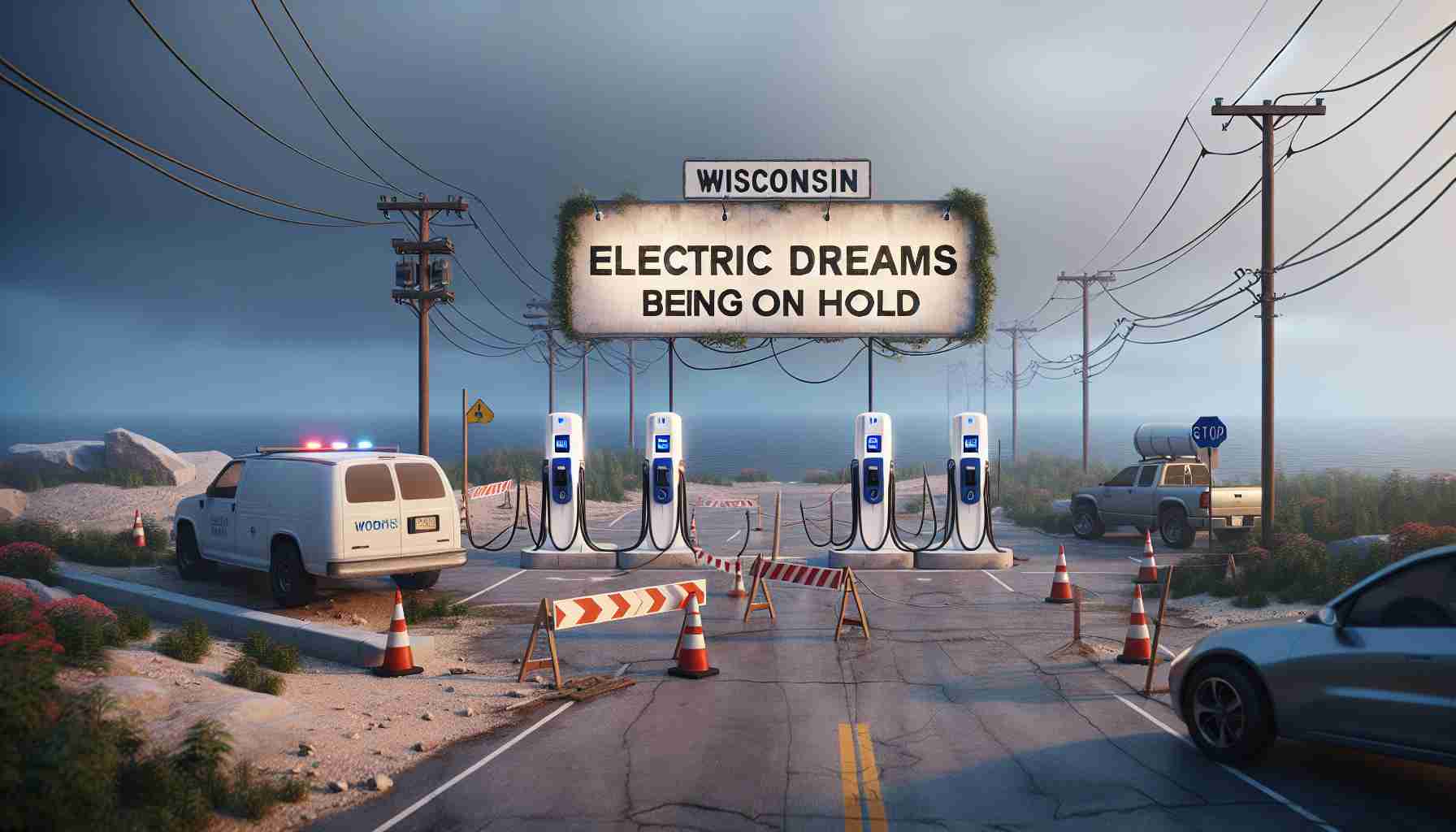- Wisconsin’s expansion of electric vehicle charging stations is hindered by a federal funding freeze.
- The freeze impacts nearly $7 million allocated for 15 EV projects statewide.
- Governor Tony Evers criticized the decision as harmful to residents amid rising living costs.
- Milwaukee and Kwik Trip announced progress on their EV projects, with funding secured prior to the freeze.
- Milwaukee plans to install over 50 charging stations between 2026 and 2030 with a $15 million grant.
- The future of Wisconsin’s EV initiatives remains uncertain as state officials seek clarification on the funding situation.
In a shocking turn of events, Wisconsin’s plans to expand electric vehicle (EV) charging stations are facing a major roadblock. Federal officials have announced a funding freeze for the National Electric Vehicle Infrastructure program, which has funded the installation of charging stations statewide. This surprising suspension affects nearly $7 million earmarked for 15 projects that promised to revamp Wisconsin’s EV landscape.
Democratic Governor Tony Evers didn’t hold back in expressing his frustration, labeling the decision as foolish and detrimental to the everyday lives of Wisconsinites. With rising costs of living and looming uncertainties, he highlighted that residents are increasingly concerned about the Trump Administration’s impact on crucial funding and livelihoods.
The freeze comes just two weeks after Milwaukee and Kwik Trip announced plans to move forward with their EV projects. Milwaukee is gearing up to install over 50 charging stations between 2026 and 2030, thanks to a $15 million grant secured before the recent changes. Meanwhile, Kwik Trip is poised to set up chargers at 24 locations across the state.
As state officials scramble for clarity on how this funding freeze will affect their projects, a significant question looms: Will these ambitious goals for a greener Wisconsin stall indefinitely?
Key takeaway? Wisconsin’s electric vehicle aspirations hang in the balance as federal actions cast doubt on future progress. Stay tuned to see how officials navigate these turbulent waters while vying for a sustainable future.
Wisconsin’s EV Charging Expansion at a Standstill – What’s Next?
Wisconsin’s EV Charging Station Expansion Faces Unexpected Challenges
Wisconsin’s initiative to enhance its electric vehicle (EV) charging station network is currently hindered by a sudden funding freeze imposed by federal officials. As part of the National Electric Vehicle Infrastructure program, this funding freeze affects nearly $7 million allocated for 15 critical projects aimed at modernizing the state’s EV landscape. This unexpected setback has caused significant concern among state leaders and residents who were hopeful for a greener future.
# Market Forecasts and Trends
The recent developments in Wisconsin reflect broader trends in the EV market across the United States. With federal funding being a crucial driver for EV infrastructure, states like Wisconsin may see considerable delays in their electrification efforts. Market forecasts suggest that nationwide, the demand for EV charging stations will continue to rise, driven by growing consumer interest in electric vehicles. However, if federal funding remains uncertain, many states might struggle to meet these demands effectively.
# Pros and Cons of the Current Situation
– Pros:
– Awareness: This situation highlights the importance of sustainable infrastructure investments and could lead to increased public pressure for renewed funding.
– Innovation: The push for alternative funding sources may spur innovation in EV infrastructure development.
– Cons:
– Delays: Numerous projects initiated by grants and funding may face delays or cancellations.
– Increased Costs: Without federal support, states may need to allocate additional state resources to keep projects afloat.
Related Questions
1. What alternative funding sources are available for Wisconsin’s EV charging projects?
– Beyond federal programs, Wisconsin can explore partnerships with private companies, seek state-level grants, or benefit from incentives associated with the Inflation Reduction Act, which may provide some funding security.
2. How does this funding freeze impact electric vehicle adoption in Wisconsin?
– The freeze could slow down the installation of charging infrastructure, potentially discouraging consumers from purchasing EVs due to concerns about charging accessibility, thereby hindering overall adoption rates.
3. What steps is the Wisconsin government taking to address the funding freeze?
– Governor Evers and state officials are actively seeking clarification from federal agencies and exploring possible legislative actions or alternate funding options to mitigate the impact of the freeze on EV infrastructure.
Insights into the Future of EV Charging in Wisconsin
Despite the current setback, there is an ongoing demand for electric vehicles, with consumer interest projected to increase. Experts suggest that focusing on sustainable partnerships and innovative funding solutions will be crucial for Wisconsin to overcome this challenge.
Suggested Reading
To explore more about the state’s electric vehicle initiatives and stay updated on developments, visit the following link: Wisconsin Government.














